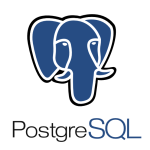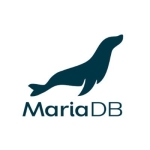
Developer at a tech company with 51-200 employees
MySQL is the most popular Open Source Data Base Management System, developed and supported by Oracle Corporation.
What is most valuable?
1) It is freely available under the terms of GNU General Public License.2) MySQL works seamless on various platforms and environments.3) It is mainly used in Client/Server environment and it can be embedded in standalone applications.
4) Support SQL standards, and also provide Multi-thread environment.5) Offers high performance due to its unique storage engine architecture as well as it's core written in powerful languages such as C and C++.
What needs improvement?
1) Does not provide good development and debugging tools, so it’s cumbersome to write large SQL statements.2) MySQL uses temporary tables to execute queries, so it consumes more space.3) MySQL is missing some RDBMS features like stored procedures, foreign keys, transaction, rollback, and subselect. And it also does't support triggers.It is widely used in web applications, and several software stacks includes MySQL as a Data Base Management System like (WAMP, XAMPP) considering its flexibility and simplicity.
What other advice do I have?
And if some one is looking for Database which performs simple processes like storing and displaying data only, then MySQL is the right choice.
Disclosure: My company does not have a business relationship with this vendor other than being a customer.
Infrastructure Expert at a tech services company with 51-200 employees
MySQL is a database system that is most used, fast, more reliable, cheaper, and better than any other database system.
Valuable Features:
It has a relational database system.
Client/Server Architecture
SQL compatibility (Structured Query Language) .MySQL has the features of the current SQL standard (at the moment SQL: 2003).
SubSELECTs: From version 4.1, MySQL is capable of processing a query in the form of SELECT * FROM tablename1 WHERE x IN (SELECT y FROM tablename2).
MySQL supports views from MYSQL version 5.0.
Stored procedures: Is capable of storing codes: MySQL has supported SPs since version 5.0.
Triggers: MySQL has supported triggers in a limited form from version 5.0
Unicode: MySQL has supported all conceivable character sets since version 4.1, including Latin-1, Latin-2, and Unicode (either in the variant UTF8 or UCS2).
User interface: There are a number of convenient user interfaces for administering a MySQL server.
Full-text search: Full-text search simplifies and accelerates the search for words that are located within a text field. If you employ MySQL for storing text (such as in an Internet discussion group), you can use full-text search to simply implement an efficient search function.
Has got statement-based replication.
It's one of the simplest ways to create databases.
Room for Improvement:
DELETE and UPDATE statements that use a LIMIT clause without an ORDER BY are non deterministic.
Statements using any of the following functions cannot be replicated properly using statement-based replication: LOADFILE (), USER ().
Disclosure: My company does not have a business relationship with this vendor other than being a customer.
it_user116742Oracle Web Administrator at a tech services company with 1,001-5,000 employees
Top 20Consultant
It is the easiest to use and simplest to learn. The coding is just simple.
Buyer's Guide
MySQL
December 2025
Learn what your peers think about MySQL. Get advice and tips from experienced pros sharing their opinions. Updated: December 2025.
879,425 professionals have used our research since 2012.
Infrastructure Expert at a tech services company with 1,001-5,000 employees
One of the best Databases on the market today.
Valuable Features:
MySQL is open source, highly extensible and scalable, and is available from a web interface via PHPMyAdmin, which is excellent because it's platform independent.In almost all instances that I have used MySQL, it has handled whatever I threw at it and hasn't failed me yet.
Room for Improvement:
It is a community driven project, which means that support is sometimes scarce and hard to find. Also, it really doesn't have an IDE per-se, like MSSQL does.
Other Advice:
I use MySQL on a regular basis, specifically whenever I am managing or installing a Wordpress instance. Combined with PHPMyAdmin, MySQL is an excellent database solution for small to medium sized businesses or installations. I would recommend using a better supported database like Oracle or MSSQL for mission critical tasks on an enterprise level, but MySQL is completely capable of performing the same tasks as those other databases.
Disclosure: My company does not have a business relationship with this vendor other than being a customer.
MySQL can be integrated with LAMP/WAMP, web applications and number of programming languages. It is widely used for phpadmin and wordpress now a days.
Developer at a tech company with 51-200 employees
Most Powerful Open Source Database
Valuable Features:
• Free to download and use
• Loads of new features over 4.1 version.
• Excellent support for a range of platforms.
• Performs well in small and medium applications.
• Most popular Open Source database engine.
• Supports advanced concepts such as replication.
• Performs extremely well in the average case.
Room for Improvement:
• It doesn't support stored procedures.
• You probably wouldn't use it for heavy-duty installation.
• There is no active directory for integration with Microsoft SQL Server or other data bases.
Other Advice:
As a developer I have used many database engines but MySQL is by far the best known and most popular Open Source database engine.
Disclosure: My company does not have a business relationship with this vendor other than being a customer.
As of MySQL 5.5.16, commercial distributions of MySQL include an authentication plugin that enables MySQL Server to use PAM (Pluggable Authentication Modules) to authenticate MySQL users. PAM enables a system to use a standard interface to access various kinds of authentication methods, such as Unix passwords or an LDAP directory.
Senior Manager of Data Center at a integrator with 51-200 employees
One of the best open source database for web developers and application enthusiasts
Valuable Features:
The best features in MySQL, making it one of the most used databases globally, are-
1) Multi-threaded architecture for multiple CPU utilization and kernel threading
2) Use of triggers and crash recovery techniques
3) Indexed Conditional Pushdown
4) Integration with LAMP/WAMP
5) Easy setup with Memcached for increasing performance and scalability
Room for Improvement:
Few cons in MySQL are
1) Increased complexity in InnoDB
2) Slower performance when using InnoDB as compared to MyISAM for using simple queries
3) Only identical MyISAM tables can be merged.
4) No active directory integration as in SQL server
5) It does not support check constraints
Other Advice:
MySQL is indeed the world's most popular open source database. It has been designed on the hyper threading infrastructure and supports multi-threaded architecture for using multiple CPU's. It works on index compression with B-Tree disk tables popularly known as MyISAM. Its efficiency depends on the implementation of SQL functions with optimization of library classes.
Disclosure: My company does not have a business relationship with this vendor other than being a customer.
MySQL is platform independent and can be installed on windows, linux and other OS too. It is an open source database under the GNU General Public License, that means developers can use it at no cost as long as the associated projects are also open source.
A stable and flexible product that is easy to use and can be deployed quickly
Pros and Cons
- "The product is flexible and easy to use."
- "The interface could be improved."
What is our primary use case?
I use the product as a backend to my application.
What is most valuable?
The product is flexible and easy to use.
What needs improvement?
The interface could be improved.
For how long have I used the solution?
I have been using the solution for seven to ten years. I am using the latest version of the solution.
What do I think about the stability of the solution?
I rate the tool’s stability a nine out of ten. The stability is good.
What do I think about the scalability of the solution?
I rate the tool’s scalability a seven out of ten. We have four direct users and more than 1000 indirect users. We use the tool twice a week.
How was the initial setup?
I rate the ease of setup an eight out of ten. The deployment took a few minutes. We need two system administrators to maintain the tool.
What about the implementation team?
The deployment was done in-house. We need one system administrator to deploy the tool.
What's my experience with pricing, setup cost, and licensing?
I rate the pricing a seven or six out of ten on a scale of one to ten, where one is cheap and ten is expensive.
What other advice do I have?
We used different solutions before, but I do not know why we switched to MySQL. I recommend the solution to others. Overall, I rate the product an eight out of ten.
Which deployment model are you using for this solution?
On-premises
Disclosure: My company does not have a business relationship with this vendor other than being a customer.
CTO at a tech services company with 1-10 employees
Highly reliable, informative dashboard, and simple implementation
Pros and Cons
- "We use the basic features of MySQL. The interface that allows us to see the parameters of the server is good."
- "I did the implementation of the solution myself and I used community support. The support from the vendor costs money."
What is our primary use case?
We use MySQL primarily for internal application systems that we developed.
What is most valuable?
We use the basic features of MySQL. The interface that allows us to see the parameters of the server is good.
For how long have I used the solution?
I have been using MySQL for approximately six years.
What do I think about the stability of the solution?
The stability is fantastic, it has been 100%.
What do I think about the scalability of the solution?
We did not plan to increase the usage of this solution at this time.
How are customer service and support?
We have not needed to contact technical support.
How was the initial setup?
The implementation was simple and took approximately one day.
What about the implementation team?
I did the implementation of the solution myself and I used community support. The support from the vendor costs money.
What's my experience with pricing, setup cost, and licensing?
We are using the free community version of the solution.
What other advice do I have?
I rate MySQL a nine out of ten.
Which deployment model are you using for this solution?
Hybrid Cloud
Disclosure: My company does not have a business relationship with this vendor other than being a customer.
Project Business Analyst RPA at a consultancy with 11-50 employees
An open-source relational database management system with a useful search feature
Pros and Cons
- "What I really like about MySQL is the opportunity to search for information and organize it any way I like."
- "It should provide better customer experiences."
What is our primary use case?
We use MySQL to organize data, analyze information, and make decisions for the company. We also use it to process information from different areas in the company.
What is most valuable?
What I really like about MySQL is the opportunity to search for information and organize it any way I like. If you know the queries and you add the code, you can organize information any way you like.
What needs improvement?
MySQL needs to be more accessible and user-friendly. The person working with it needs to be trained in MySQL to have the necessary skills to control the database and analyze data. It should provide better customer experiences.
For how long have I used the solution?
I have been using MySQL for one year.
How was the initial setup?
The initial setup depends on your knowledge. If you know the principles, except when it comes to queries, it's easy. But if you don't know anything about MySQL or SQL, you can't do it. It took us about six months to set up and deploy MySQL.
What other advice do I have?
I would tell potential users that people in production have to be trained to use MySQL. They should take some courses, and get certificated. This will show them how to use the principal tools and provide some context about how MySQL works.
On a scale from one to ten, I would give MySQL an eight.
Which deployment model are you using for this solution?
Private Cloud
Disclosure: My company has a business relationship with this vendor other than being a customer. Partner
Buyer's Guide
Download our free MySQL Report and get advice and tips from experienced pros
sharing their opinions.
Updated: December 2025
Popular Comparisons
Teradata
SQL Server
PostgreSQL
Firebird SQL
Oracle Database
SAP HANA
MariaDB
MongoDB Enterprise Advanced
Faiss
ClickHouse
OpenSearch
Milvus
Qdrant
IBM Db2 Database
InfluxDB
Buyer's Guide
Download our free MySQL Report and get advice and tips from experienced pros
sharing their opinions.
Quick Links
Learn More: Questions:
- Which solution do you recommend for embedding reporting? Why?
- Did you switch from a different solution to MySQL? Can you list a few pros and cons for making the move?
- Why are MySQL connections encrypted and what is the biggest benefit of this?
- Considering that there is a free version of MySQL, would you invest in one of the paid editions?
- What is one thing you would improve with MySQL?
- How does MySQL compare with Firebird SQL?
- When evaluating Open Source Databases, what aspect do you think is the most important to look for?
- Did you switch from a different solution to MySQL? Can you list a few pros and cons for making the move?
- Which database is the best for session cashing?
- Why is Open Source Databases important for companies?


















MySQL is great to provide a testing ground for new developers.